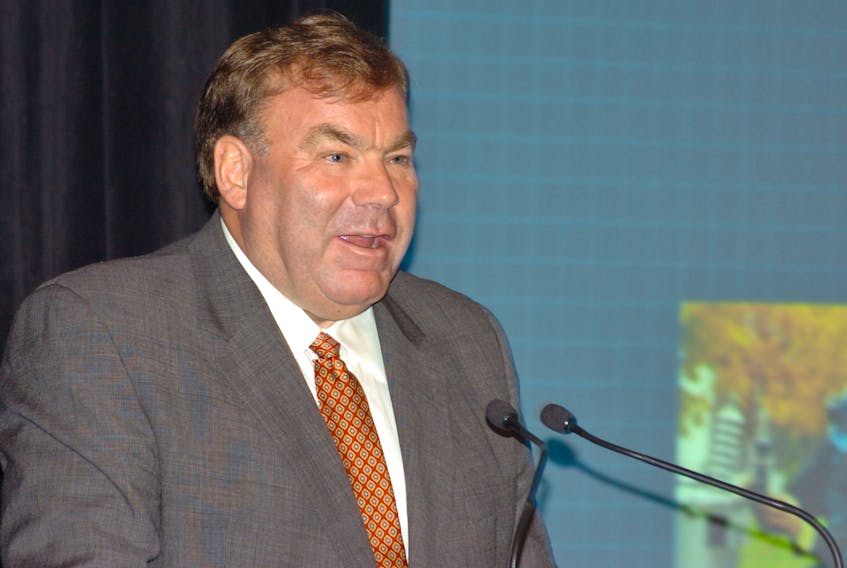Nalcor CEO Stan Marshall struck an upbeat tone in a quarterly conference call Wednesday, saying things are going well with the Muskrat Falls hydroelectric project, all things considered.
The conference call was ostensibly a third-quarter financial performance update, but none of the financial numbers were particularly earth-shattering.
But Marshall revealed that one of the key components of the Muskrat Falls project — the Labrador-Island Link transmission line — is done.
“We are nearing completion of the transmission component, and on target to bring power from Churchill Falls to the island by mid next year,” he said.
“The last tower has been erected, and the last transmission line conductor strung.”
Bringing cheap electricity from Churchill Falls is part of the plan to help blunt the major electricity rate increases that will come when Muskrat Falls is completed.
Marshall also said the province might start importing cheaper power from Nova Scotia across the recently completed Maritime Link subsea cable.
Marshall was asked about whether there’s any update on Muskrat Falls costs, and how that will affect rates.
He said there’s no change from the $12.7-billion price forecast Nalcor released earlier this year.
But Nalcor’s mitigation efforts don’t mean ratepayers’ electricity bills will be cheap.
“I mean, you have to accept that you’re facing a substantial increase in rates. You cannot change the big picture,” Marshall said. “The big picture was almost set from the time you decided to do Muskrat Falls. But we can take some substantial measures to mitigate, at least in the short-term.”









